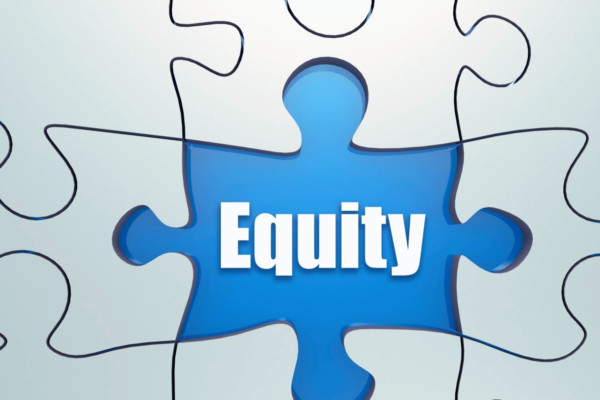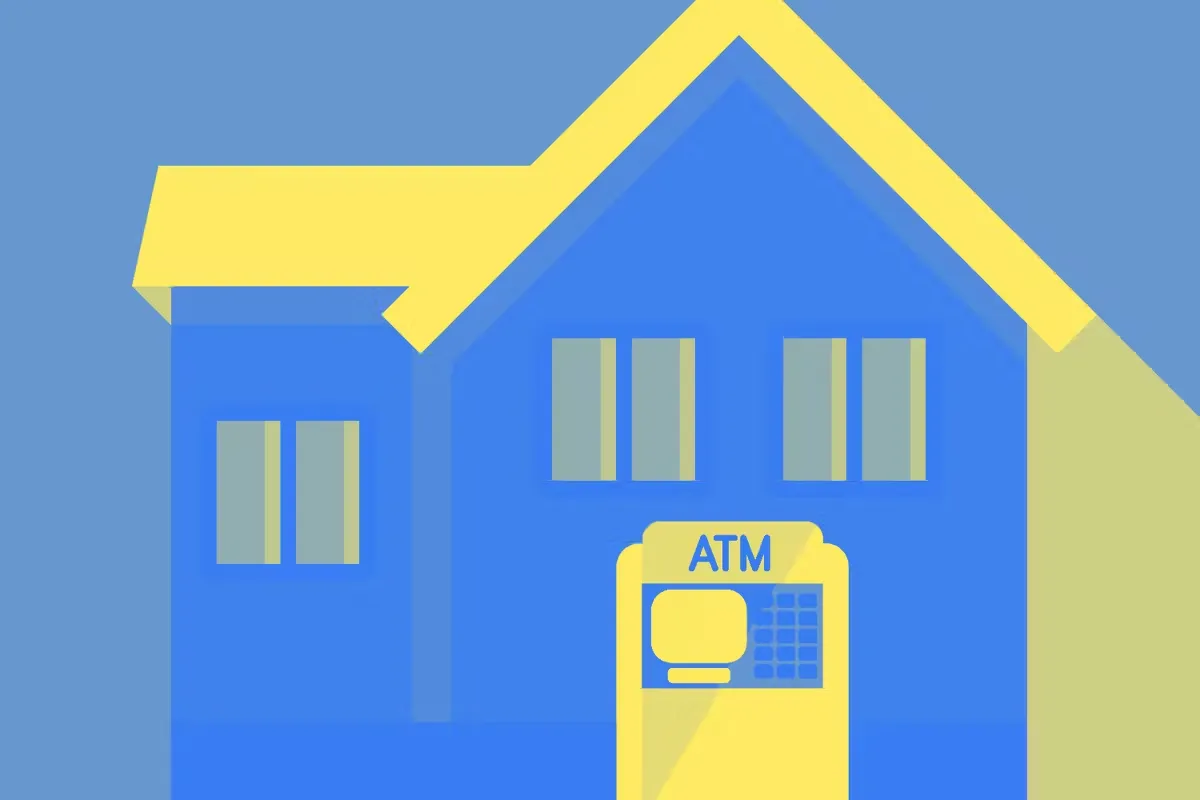
Guide to Homeownership: What is a Home Equity Loan?

One of the many advantages to being a homeowner is the ability to build equity in your home. That equity can be unlocked using a home equity loan, or HEL, and can serve as a useful tool when you want to finance other life goals. Here, we’ll explain the basics of home equity loans, how they work, as well as the benefits and risks to help you decide if a home equity loan is right for you.
What is Home Equity?
Before considering a home equity loan, it’s crucial to understand what home equity is, and how you acquire it. In short, home equity is the difference between how much your house is worth—its appraised market value—and how much you still owe on your mortgage(s).
As an example, let’s say you currently owe $180,000 on your home’s primary mortgage but its current appraised value of your home is $400,000. Doing a bit of quick math, you’ll find that in this instance you would have approximately $220,000 in home equity ($400,000 – $180,000 = $220,000). In other words, if you were to sell the home tomorrow, in theory you could walk away with $220,000 (not including closing costs and commissions).
From Mortgages to Home Equity Loans
Our local, award-winning lending team is ready to help you begin today.
What is a Home Equity Loan?
A home equity loan, or HEL, is a way to unlock the equity in your home without actually having to sell your house. Instead, you can use your home as collateral to borrow money. Just as with the original mortgage loan you used to purchase your house, a home equity loan—sometimes known as a second mortgage or second lien—uses your house as security to protect lenders in the case that you should default on the loan.
How Does a Home Equity Loan Work?
With home equity loans, as opposed to home equity lines of credit (HELOCs) where smaller amounts can be withdrawn over time, the lender provides the borrower with a lump sum payment upfront. Home equity loans have fixed interest rates, so payments are made on a monthly fixed installment plan for the length of the loan term.
With that in mind, there are a few factors you should consider when shopping around for the home equity loan that is best for you.
The Loan Amount
Even if you have a high home value and low outstanding mortgage amount, you cannot take out the full amount of equity you have in your home in the state of Texas. The Lone Star State has specific home equity loan rules designed to protect homeowners, and one of the biggest rules is that you cannot use more than 80% of your home’s equity. In other words, what you owe on your mortgage and what you owe on a home equity loan must be less than 80% of the home’s value.
If we revisit the example above, that means that in the case where you have a home valued at $400,000 but still owe $180,000, the maximum amount you could borrow would be $140,000. Here’s the math:
$400,000 [home value] x 80% (maximum loan allowed) – $180,000 [amount still owed] = $140,000 [home equity loan amount]
It’s also important to note that although you can take out a maximum of $140,000, you can also request a loan for less than the full amount. Borrowing only what you need can help ensure that repayments on the loan are manageable.
The Interest Rate
Once you know how much you need to borrow, you should shop around for the best interest rate. One of the upsides of home equity loans is that interest rates are fixed, which means you’ll have predictable payments over the entire loan term. The interest rate will vary upon a variety of factors, including your credit score and your loan to value ratio.
The Loan Term
The amount of time you have to pay back your home equity loan, also known as the loan term, is another important factor to consider. While longer loan terms mean lower monthly payments, interest rates are usually higher, and you will likely end up paying more in interest than if the loan term were shorter. Usually, HELs are available in loan terms ranging between 5 and 20 years.
What Can I Use a Home Equity Loan for?
Home equity loans can be used for a variety of purposes, from home renovation projects to debt consolidation. Homeowners can also use a home equity loan to pay off student loans or other debts, freeing up more money in their monthly budget. In fact, the possibilities are almost endless when it comes to using a home equity loan.
Home Renovation Projects
Home equity loans are a great way to finance projects around the house, such as remodeling, home improvements, and more. With access to funds that come from your own home’s equity, you can make upgrades and repairs without having to worry about taking out a loan or using up all of your savings. From renovating rooms to replacing appliances and installing new fixtures, there are plenty of ways you can use a home equity loan for projects in your home, like:
- Installing a new kitchen
- Remodeling bathrooms
- Adding more living space/additions
- Finishing a basement or attic
- Replacing flooring and carpets
- Upgrading windows, doors, and siding
- Replacing roofing and gutters
- Installing outdoor features such as decks, patios, pergolas, etc.
- Landscaping the yard with trees and plants
- Installing an irrigation system for lawn care
Debt Consolidation
Using a home equity loan to pay off debt or student loans is a popular option for homeowners who are looking to lower interest rates on their payments or simply combine bills into one payment. This type of loan allows you to use the equity in your home as collateral, so you can borrow money without having to take out a personal loan or dip into your savings. With access to funds from your own home’s equity, you can pay off debts and student loans all at once, freeing up more money in your monthly budget.
Using a home equity loan for debt consolidation should be done cautiously–you want to make sure you can make the monthly payments, that you have a better interest rate, and that this is the best use of the funds.
What Are the Pros and Cons of HELs?
As with any financial decision, there are tradeoffs to be made when it comes to home equity loans. Being aware of the advantages and disadvantages of this type of financial tool can help you make the best choice for your situation.
Pros:
- It’s easier to qualify a HEL than many other types of personal loans.
- HELs have a fixed interest rate that is usually lower than other types of consumer loans.
- Loan terms are usually longer (5-20 years) than most other consumer loans.
- You can use the funds however you choose.
- Your monthly payments are predictable.
- The lump sum payment means the funds are immediately accessible.
Cons:
- If repayments aren’t made, the lender can foreclose on your home to pay off remaining debt.
- If real estate values decrease, you could owe more than your home is worth.
- You’ll have to make payments on two mortgages.
- You will pay closing costs on the loan, unlike other consumer loans.
- If you decide to sell your home, you have to pay off the entirety of the home equity loan and your primary mortgage when you close.
Is a Home Equity Loan Right for Me?
A home equity loan can be a great tool for homeowners who need to access the value of their homes without selling them. It’s important, however, to weigh the pros and cons carefully before deciding if it is right for you. Home equity loans have fixed interest rates and longer terms which make monthly payments more predictable than other types of consumer loans; however, they also come with risks such as foreclosure in case of default or owing more than your home is worth if real estate values decrease. Ultimately, taking out a HEL should depend on what best suits your financial situation at that moment in time.




